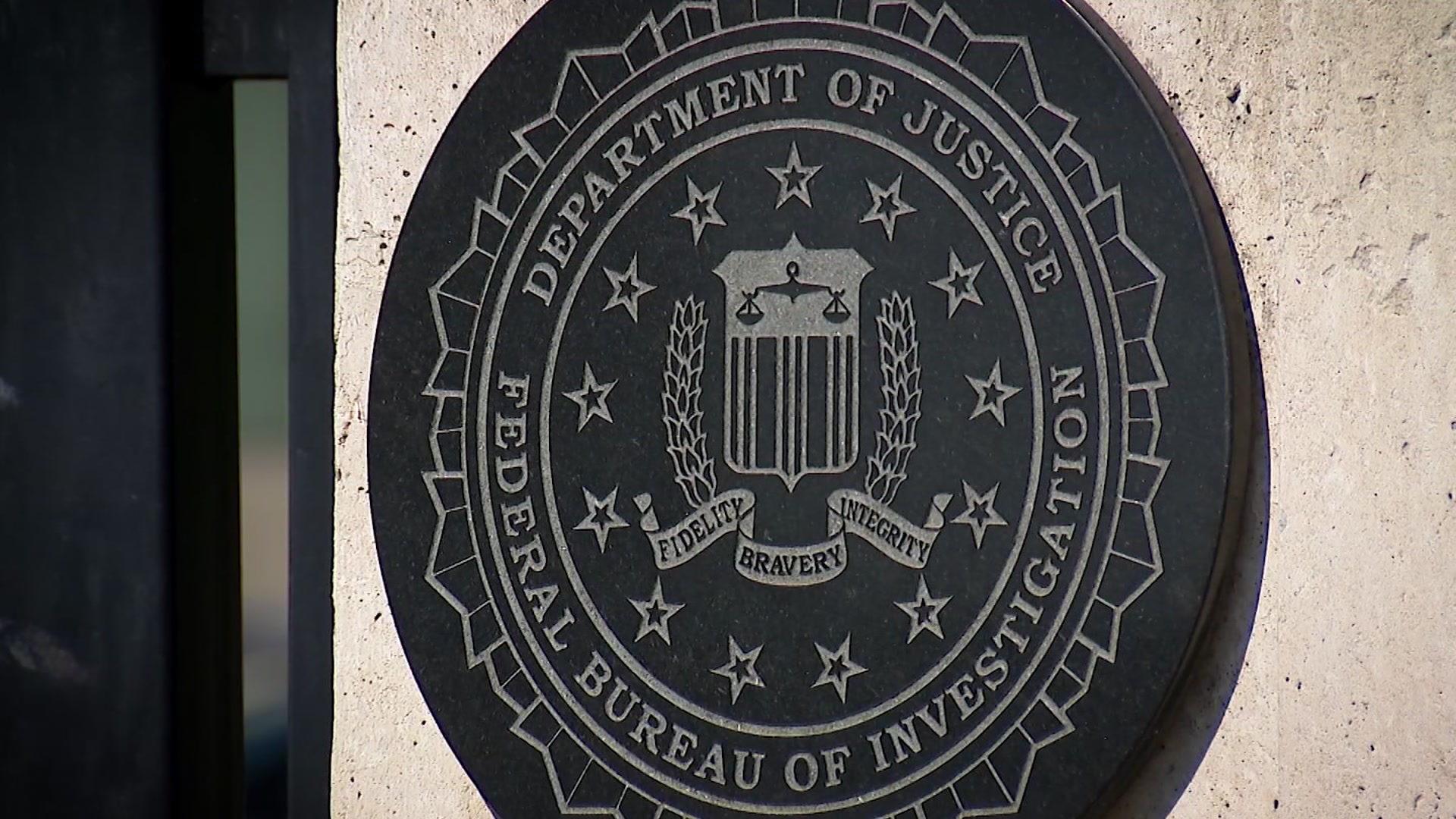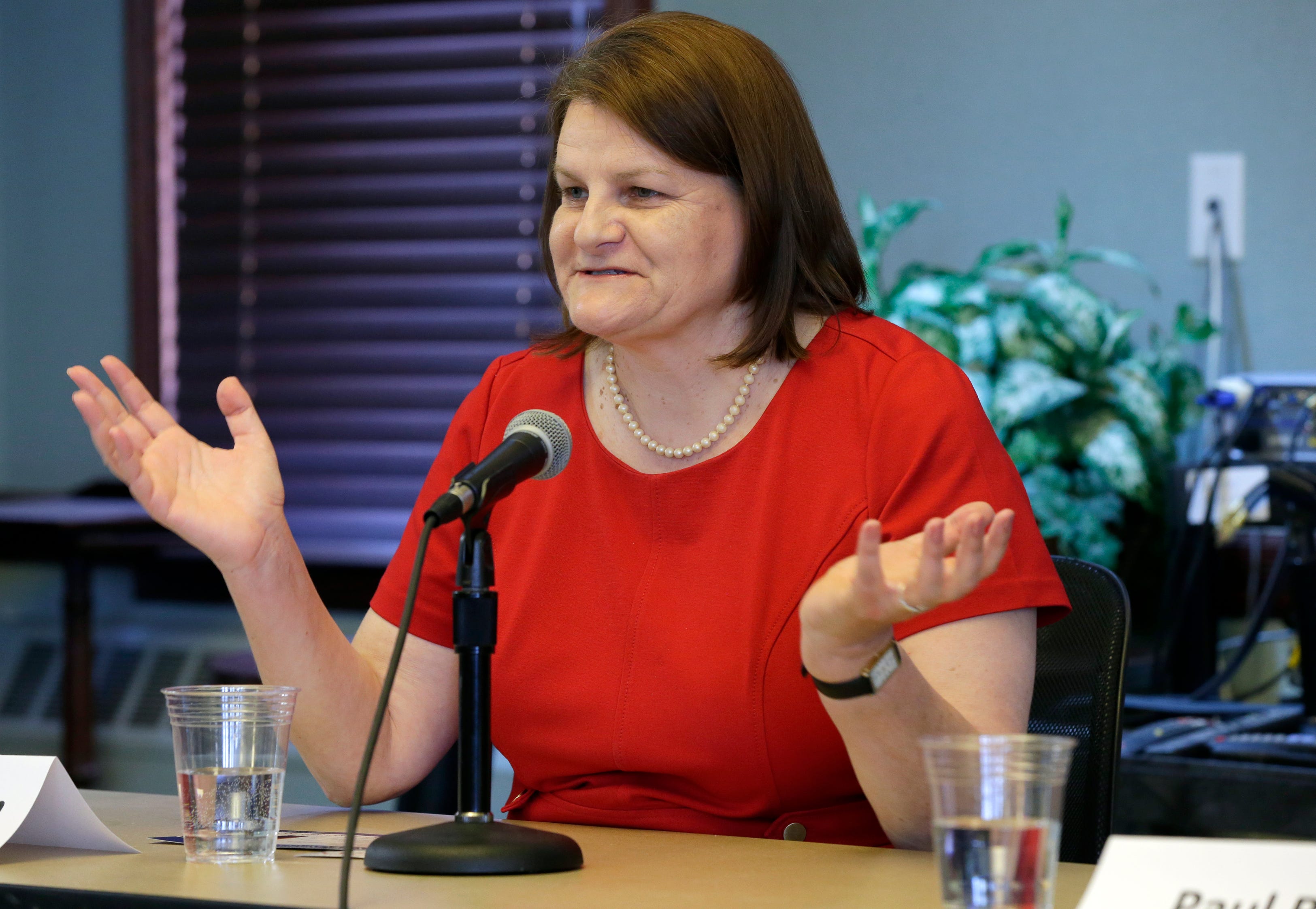FBI Arrests Judge: Immigration Interference in Milwaukee?
Milwaukee Judge Arrested: Immigration Interference Scandal
Introduction: A Shockwave Through Milwaukee's Judiciary
Friday sent shockwaves through Milwaukee, and indeed the nation, as news broke: Milwaukee County Circuit Court Judge Hannah Dugan was arrested by the FBI. The allegation? That she obstructed federal authorities attempting to detain an undocumented immigrant. Imagine the scene – a judge, seemingly acting against federal law enforcement. It's a scenario ripped from a political thriller, but this time, it's playing out in real life.
The Allegations: A Jury Door and an Undocumented Immigrant
The specific charge against Judge Dugan centers around her alleged actions in escorting an undocumented immigrant and his defense attorney through a non-public jury door. This, the FBI alleges, was a deliberate attempt to impede the federal authorities' efforts to detain the individual. But what motivated this alleged interference? Was it a calculated act of defiance, or something else entirely?
The Significance of a Jury Door
Think of a courtroom. There's a public area, visible and accessible to everyone. Then there are the areas reserved for judges, lawyers, and juries. A jury door is a gateway to one of those restricted areas. Using it to allegedly circumvent law enforcement raises serious questions about Judge Dugan's intentions and actions.
Escalation in Immigration Enforcement: The Trump Administration's Stance
This arrest comes at a time when immigration policies are already a hot-button issue. It's viewed by many as a significant escalation in the Trump administration’s crackdown on immigration, reflecting their stated intention to hold local and state authorities accountable for any perceived obstruction of federal immigration laws. This isn't just about one judge; it's about a broader ideological battle.
Echoes of Previous Conflicts
We've seen this before, haven't we? The Trump administration has frequently clashed with judges over federal policy. This incident can be viewed as the latest skirmish in that ongoing war, a battle fought in courtrooms and the media.
Attorney General Bondi's Response: "Deranged Judiciary"?
The arrest quickly became fodder for political commentary. Attorney General Pam Bondi, during an appearance on Fox News, seized on the opportunity to criticize the judiciary as a whole. Her use of the term "deranged" to describe what's happening to the judiciary is, to say the least, inflammatory. This highlights the highly politicized atmosphere surrounding the case.
Fueling the Fire
Bondi's comments further inflamed the already tense situation. Was she offering a measured assessment, or was she simply fanning the flames of partisan division? The answer likely depends on your own political leanings.
The Charge: Obstructing a Proceeding
Judge Dugan faces charges of obstructing or impeding a proceeding before a department or agency. This is a serious charge, carrying potentially significant penalties. The legal definition of "obstructing a proceeding" can be complex, and the prosecution will need to prove beyond a reasonable doubt that Judge Dugan's actions met that definition.
The Legal Battle Ahead
This case is now headed for a potentially lengthy and contentious legal battle. The prosecution will present its evidence, and Judge Dugan's defense team will undoubtedly fight to clear her name. The outcome could have far-reaching implications.
Public Reaction: Divided Opinions and Shifting Allegiances
As news of the arrest spread, public reaction was swift and divided. Some applauded the move, seeing it as a necessary step in enforcing immigration laws. Others condemned it as an overreach of federal power and an attack on judicial independence. Social media was, predictably, a battleground of opposing viewpoints.
The Court of Public Opinion
While the legal proceedings play out, Judge Dugan will also be judged in the court of public opinion. The media coverage, the social media discussions, and the general public sentiment will all play a role in shaping her reputation and future.
The Role of Judicial Independence: A Cornerstone of Democracy
One of the key concerns raised by this case is the potential impact on judicial independence. Judges must be free to make decisions based on the law and the evidence, without fear of political reprisal. An arrest like this could create a chilling effect, making other judges hesitant to act in ways that might be perceived as challenging the federal government.
Protecting the Bench
A truly independent judiciary is essential for a healthy democracy. It serves as a check on the power of the executive and legislative branches. Any action that undermines judicial independence should be viewed with concern.
What Happens Next? Potential Scenarios and Legal Outcomes
The future of this case is uncertain. Several scenarios are possible, ranging from a plea bargain to a full trial. Judge Dugan could be acquitted, convicted, or the charges could be dropped altogether. The legal process is complex and unpredictable.
The Long Road Ahead
Regardless of the outcome, this case will likely have a lasting impact on Milwaukee's legal community and on the broader debate about immigration enforcement. It's a reminder that even seemingly straightforward legal matters can be deeply intertwined with politics and ideology.
Milwaukee's Legal Community: A State of Disbelief and Uncertainty
Within Milwaukee's legal circles, Judge Dugan's arrest has generated a mix of disbelief, shock, and uncertainty. Colleagues who have worked with her express surprise, struggling to reconcile the allegations with their personal experiences of her. The incident has cast a shadow over the entire legal community, raising questions about the relationship between local and federal authorities.
Navigating Uncharted Waters
The situation has created a sense of unease, as legal professionals grapple with the implications of a county judge facing federal charges. Many are closely monitoring the proceedings, aware that the outcome could set a precedent with far-reaching consequences for the independence of the judiciary and the balance of power within the legal system.
The Broader Implications for Immigration Policy and Enforcement
Beyond the immediate legal ramifications, Judge Dugan's arrest serves as a stark reminder of the ongoing tensions surrounding immigration policy and enforcement. The case underscores the deep divisions within American society regarding how to address the issue of undocumented immigrants and the role of local authorities in enforcing federal immigration laws.
A Nation Divided
The arrest has reignited the debate about sanctuary cities and states, as well as the extent to which local law enforcement should cooperate with federal immigration agencies. It has also raised questions about the potential for political motivations to influence decisions related to immigration enforcement, further polarizing the already contentious issue.
The Future of Judicial-Federal Relations: A Precarious Balance
The fallout from Judge Dugan's arrest could have a lasting impact on the relationship between the judicial branch and federal agencies. The case has highlighted the potential for conflict between these entities, particularly when it comes to politically charged issues like immigration.
Safeguarding the System
It's essential to ensure that the judicial branch remains independent and free from undue influence from other branches of government. Otherwise, the very fabric of our democracy may be jeopardized. Safeguarding the role of judges will require vigilance and a renewed commitment to the principles of separation of powers and the rule of law.
Conclusion: A Case to Watch Closely
The arrest of Judge Hannah Dugan is a complex and multifaceted story with far-reaching implications. It highlights the tensions surrounding immigration enforcement, the importance of judicial independence, and the potential for political polarization to influence legal proceedings. This case is one to watch closely, as its outcome could shape the future of immigration policy and the relationship between the judicial branch and the federal government.
Frequently Asked Questions (FAQs)
1. What specific federal law did Judge Dugan allegedly violate?
Judge Dugan is charged with violating federal law related to obstructing or impeding a proceeding before a department or agency. The exact statute will be cited in the indictment. The government must prove she intentionally acted to hinder their efforts.
2. What is the potential penalty Judge Dugan faces if convicted?
The penalty for obstructing a federal proceeding can vary depending on the specific statute and the circumstances of the case. It can range from fines to imprisonment. The severity of the penalty will be determined by the court if she is convicted.
3. Will Judge Dugan continue to serve as a judge while the case is pending?
The decision on whether Judge Dugan will be suspended from her judicial duties while the case is pending rests with the Wisconsin Supreme Court. They will likely consider the nature of the charges and the potential impact on public trust in the judiciary.
4. How does this case relate to the concept of "sanctuary cities" or "sanctuary states"?
While not directly related to a formal "sanctuary city" policy, the case underscores the tension between federal immigration enforcement and local jurisdictions. It raises questions about the extent to which local officials can or should cooperate with federal immigration authorities.
5. What are the key arguments Judge Dugan's defense team is likely to present?
The defense team will likely argue that Judge Dugan acted within her authority and did not intentionally obstruct federal authorities. They may claim her actions were motivated by concerns for the safety or well-being of the individual and his attorney. They could also challenge the government's interpretation of the law and the evidence presented.

